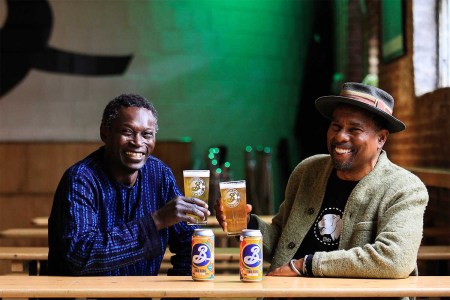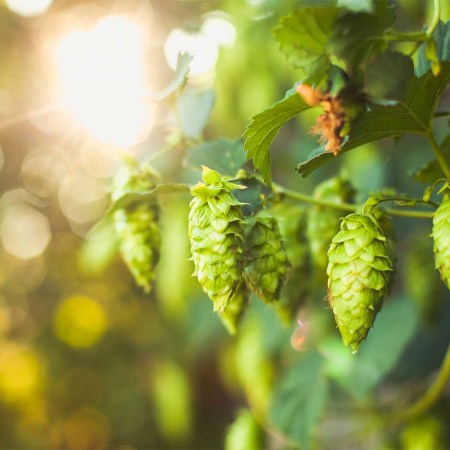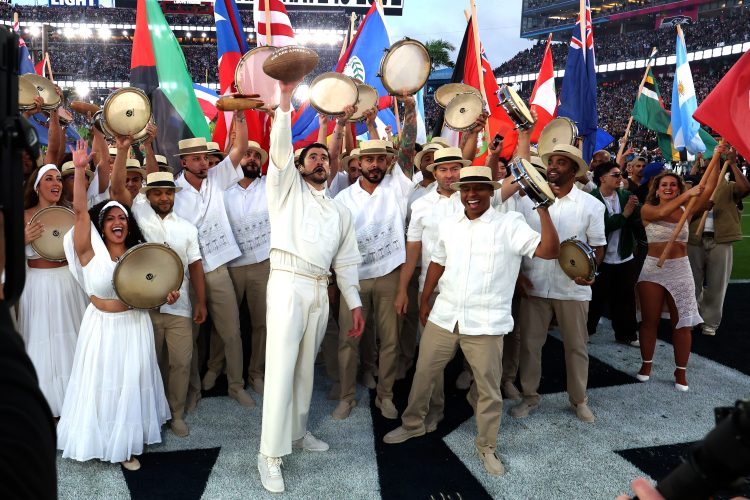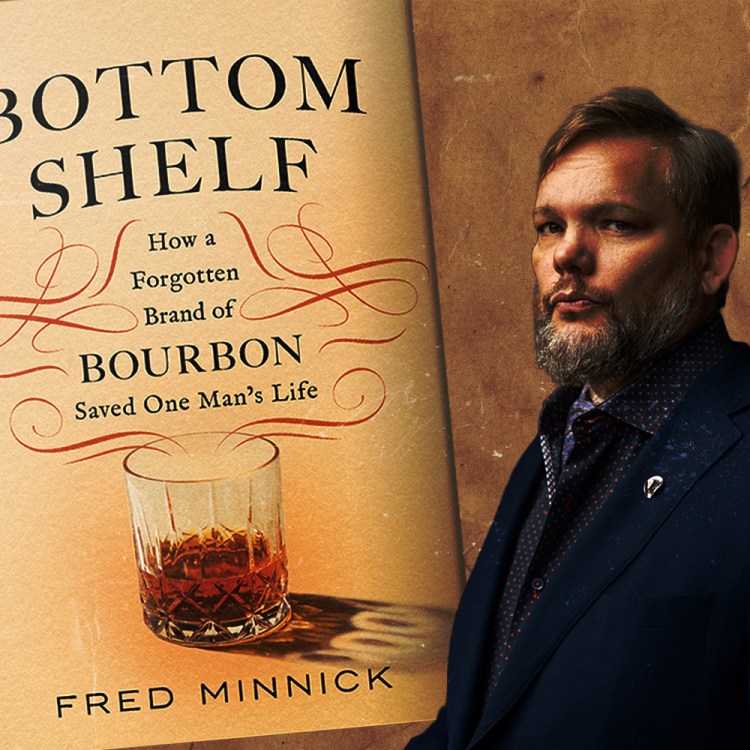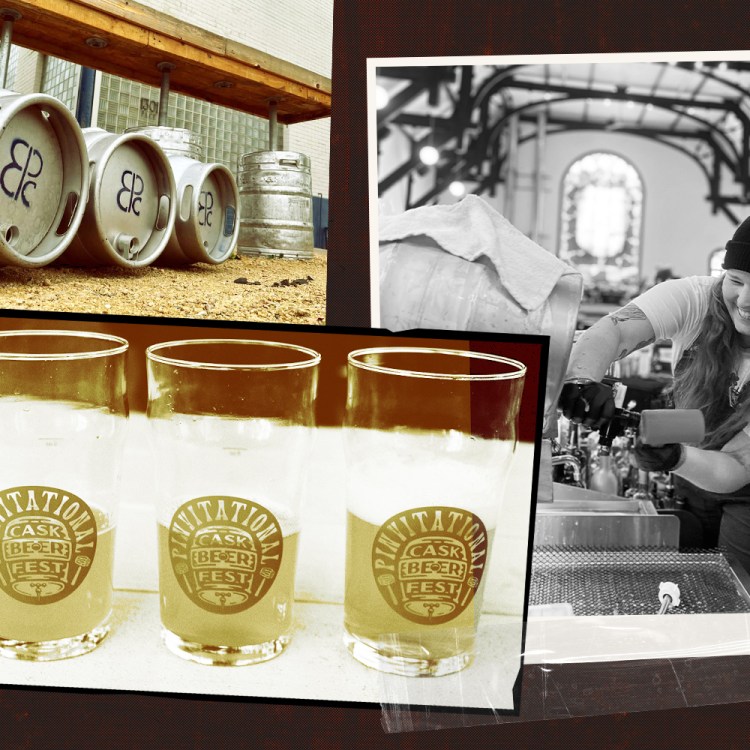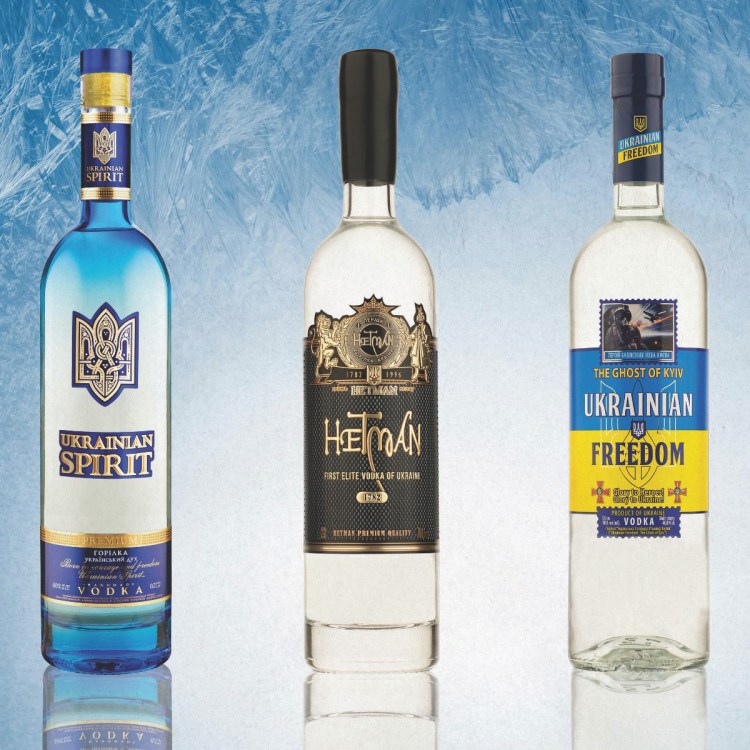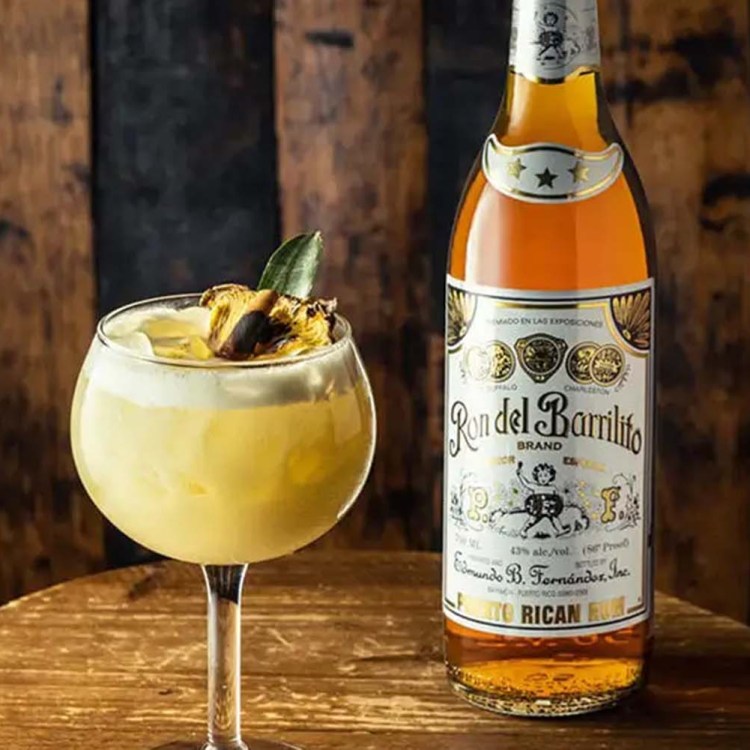One of the hottest trends on the rise in craft beer in recent years? Spirits, of course. While heavy hitters like Dogfish Head started rolling out spirit extensions to their lineups as long ago as 2015, the last couple of years have seen an uptick in new spirit launches even from much smaller breweries. Vice president of strategy and chief economist for the Brewers Association Bart Watson, PhD, says that for 2023, the number of breweries with a distilled spirits plant (DSP), which is what distillers must establish with the Tobacco Tax and Trade Bureau, was over 600. This is up from the last time Watson ran these numbers (it hasn’t been a consistent survey but he says it might become one now), which was about 450.
This doesn’t mean all 600-plus breweries with DSPs are actively distilling. But in the last year or two, we’ve seen evidence that more beer-makers are getting in the spirits game, whether it’s with canned cocktails or rum, whiskey, gin, etc. The pace of these announcements has become steady enough that they might not raise eyebrows anymore, until a certain kind of brewery enters the chat. When Massachusetts-based Trillium Brewing Company revealed a spirits repertoire on April 11 of this year, the move felt significant. As much as this distinction still exists in today’s craft beer industry, where novelty and the kind of demand that fuels release-day lines are fading, Trillium belongs to that upper echelon of “hype” breweries. Their hazy IPAs have made them a brewery to know even in regions where they don’t distribute. So, what does it mean when a beer brand like this gets into spirits? Are they taking their foot off the gas when it comes to beer?
This is not a pivot in the making, says Trillium cofounder and co-owner Jean-Claude, or JC, Tetreault. “Spirits has always been a key part of what we envisioned [as] our hospitality program,” he explains. Tetreault and his wife Esther Tetreault opened Trillium in Boston in 2013, selling beer to-go only and then expanding with additional locations in the area, leading up to a 500-seat restaurant and taproom in their original Fort Point neighborhood in 2018. For the first few years, the herculean task of running an establishment of that size, in addition to actually brewing the beer, made the Tetreaults’ goal of adding spirits to the overall Trillium experience impossible. And right as they began turning their attention to the first steps of distilling, like licenses, COVID hit.
In Massachusetts, no one license allows for the producing and selling of a combination of beer, spirits and wine. Establishments are allowed, however, to pour anything they make or have made for them. If they do decide to handle production in-house, there is still the hitch that they must house any different beverage alcohol manufacturing system in a separate space — brewhouses and distilleries can’t overlap. Trillium approaches the addition of spirits manufacturing through the state’s farm brewery, farm winery and farm distillery license pathway, which provides a pouring permit for its own products.
The Next Big Grain in Beer? It’s Called Fonio.
Brooklyn Brewery’s Garrett Oliver is leading a multi-brewery effort to incorporate this ancient African grain into new types of beerThanks to the typical red tape around government approvals only further exacerbated by a pandemic, Trillium’s licenses to pour at their different locations have just been coming in leading up to their announcing the spirits’ debut. Essentially, the brewery has been at this for several years, predating the newer element of pressure some breweries feel now to expand from beer-makers to general beverage alcohol-makers. Craft beer sales have been flagging, while craft spirit sales grow. Per the Brewers Association, craft beer sales decreased by 2 percent in 2023. Craft spirit sales saw a growth rate of 5.3 percent in 2022. As the 2024 craft brewer strategizes how to remain relevant and continuously engaging to new audiences, and the entire industry desperately tries to figure out what Gen Z wants to drink (no booze at all? Tequila?), one potential route to success lies in product diversification. If you can’t beat ‘em, join ‘em: Invite Gen Z and all manners of consumers into your taproom with what they previously couldn’t get there, from sparkling hop waters to margaritas.
“People are treating taprooms as bars now,” says beer journalist and author Joshua M. Bernstein. “The idea of traveling to a taproom in the middle of nowhere to drink IPA, that ship has sailed…It’s important to offer as many beverages to as many people as possible.” Being able to meet a wider array of preferences is crucial for a brewery taproom’s survival today, but that doesn’t mean the only path is for a brewery to make its own spirits. If its state laws allow, bringing in other brands’ offerings is a safer bet unless there’s a genuine dedication to distilling. A brewer trying distilling as a hobby “isn’t going to fly anymore,” Bernstein says. “You have to commit with the same intentionality as you apply to making beer.”
For a brewery looking to get more people into its taproom, adding house-made spirits to the menu is far from a quick fix, and brewery owners with an authentic interest in spirits regardless of the current industry climate may be at an advantage. Trillium’s spirits release comes at a time when taprooms need to offer more options to more people, but this happened to be part of the Tetreaults’ plan even when craft beer was booming. Their vision has long been for Trillium to house both beer and spirits.
“We started as and will always be a brewery,” JC Tetreault says, explaining Trillium spirits are not meant to replace the brewery’s renowned beer or stand on their own as an unrelated brand; rather, they are meant to enrich a bar program at Trillium’s locations, and match Trillium beer in quality. “The expectations we have for ourselves, and that I think our guests expect of Trillium, as well, isn’t for us to have three or four different types of cocktails and for them to be very basic,” Tetrault says. The Tetreaults want their cocktails to be built on spirits crafted with thoughtfully sourced, local ingredients — some of the grain is grown on their own farm. This places the brewery taproom on the map of Boston’s bars.
“Until very recently, we were not offering cocktails,” Tetreault says. “And if you’re going to the taproom with a group, there’s bound to be somebody who’s really not interested in beer, or who just prefers cocktails…[Making spirits] was an intuitive thing for us to do because of our core values and vision, but it also makes us more durable from a business perspective. Our customers can go across the street and get a margarita if that’s what they want, but they’d prefer to come to Trillium if they knew we had that. We’d like to be able to offer that to them.”
The Tetreaults have spent the last few years intentionally building their distillery. It lives at Trillium’s Canton location, with a 1,000-gallon hybrid pot still and a 150-gallon continuous column still. Kyle Wortz, who previously distilled at High West Distillery in Park City, Utah, has joined the Trillium team to lead the spirits operations. Eventually, Tetreault says he expects whiskey to be the main driving force of Trillium spirits; of course, the ryes and single malts they plan on releasing require aging. In the meantime, therefore, Trillium launched its lineup with: Aveller Gin, Wavebreak White Rum, Windrow Vodka, Agrumi Amaro, Ardito Amaro and JC Tetreault Orange Liqueur. The cocktail-friendliness of this repertoire is immediately apparent, and reveals the Tetreaults’ goal to continue tying their spirits to local ingredients they have a hand in growing, not only on their farm but in a garden they’re starting for botanicals — their gin features 11 different ones.
These are the immediate plans, to grow more ingredients, to start foraging for others, to build their whiskey program, to use the spirits in the taproom. When asked about expansion and retail distribution, Tetreault stresses that he is intently focused on perfecting product before widening its retail footprint, or increasing capacity. For one thing, the Tetreaults have been careful to not rush building the distillery, as they don’t want to have to revisit it to rebuild or expand in a few years. As far as sales go outside of Trillium locations, where spirits will be available on-site in cocktails as well as bottled for sales to-go, they are distributing to what Tetreault calls “a small number of bars, restaurants and bottle shops where we already sending our beer.” The distillery has the capacity to ramp up production over the years, but the Tetreaults want to carefully track demand to make informed decisions about where they distribute and in what volumes.
This measured approach, as opposed to an overly zealous stab at another profit source via spirits in the face of saturation in craft beer, is likely a wise choice. “The spirits world is incredibly competitive, as well, with distribution that is even more consolidated than in beer,” Watson says. “There is also risk in splitting your attention and/or alienating your current audience, particularly if your new brands stray from your existing ones in marketing and tone.”
Bernstein echoes this sentiment. He sees potential value in taproom sales, where you can make your margins work for you and where people see value in trying all the products under your brand, which they are already interested in and keen to support, being in your space. But lofty retail ambitions may not prove as reliably successful. “I don’t know how much space there is for another new spirit on shelves, and the price points are tough,” he says. “It’s just like how craft brewers making light lagers can’t compete with 30-packs of macro light lagers. If there are great high-quality spirits available for lower prices, are you competing with them?”
There may be fruitful paths forward for breweries like Trillium to sell spirits in specialty bottle shops and places where their brand already both intrigues consumers and instills them with confidence in their purchases. For now, that recognition that Trillium enjoys for its beer is exactly what Tetreault wants to build with its spirits. The most immediate priority is enhancing what the Trillium experience can be at its locations, and catering to the preferences and interests of every guest who walks in the door.
The second floor of the Fort Point location will now be a hi-fi listening bar featuring cocktails with Trillium spirits. Tetreault says they’ve redesigned the space, added art and a substantial curation of vinyl, and will offer a small plates menu separate from what’s on offer downstairs. It will be 21-plus, creating a different option than the family-friendly taproom. That range in experiences and being able to fulfill various needs for various patrons is exactly what Trillium’s spirits are about, Tetreault explains.
“If you come [to a Trillium location] on a busy Saturday and you look around, you don’t see any one type of person,” he says. “You’ll see people in their twenties, a bunch of friends going out. You’ll see young families. You’ll see multiple generations of a family. You’ll see people in the early part of retirement. And everybody in between. So, we’re not trying to tap into some audience we feel like we’re missing right now. We’re looking to meet the expectations of these folks.”
Every Thursday, our resident experts see to it that you’re up to date on the latest from the world of drinks. Trend reports, bottle reviews, cocktail recipes and more. Sign up for THE SPILL now.

